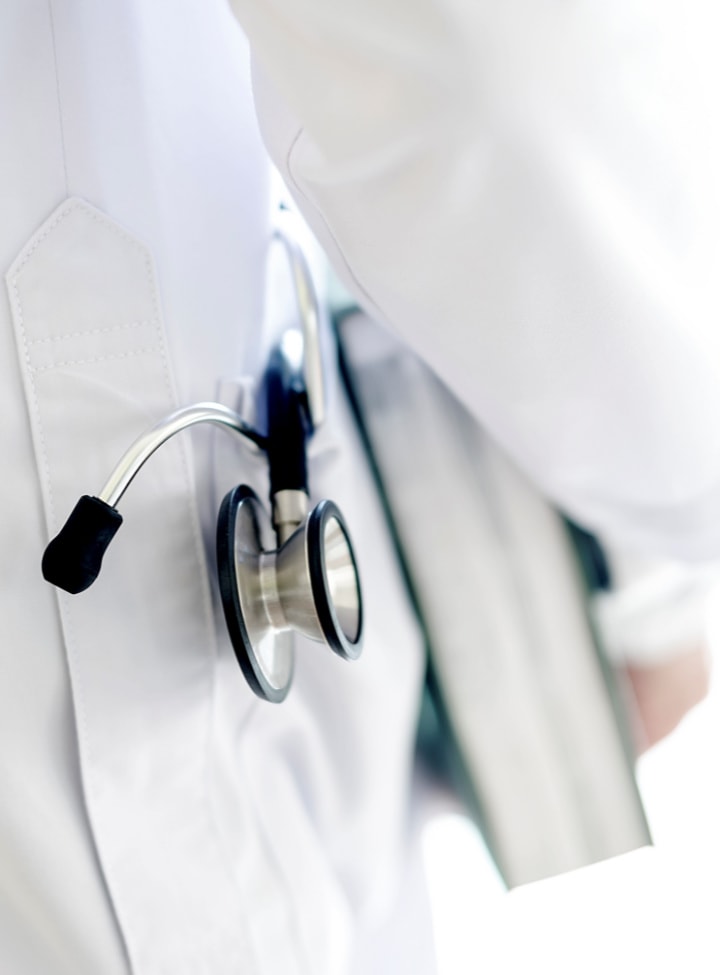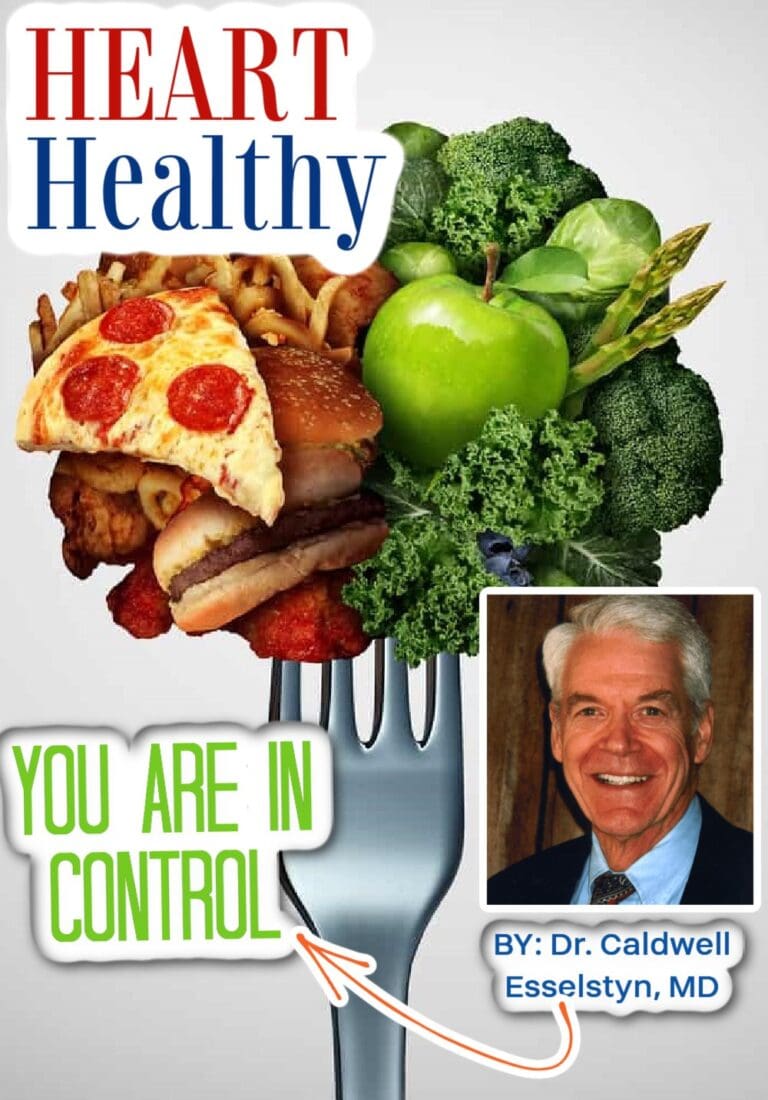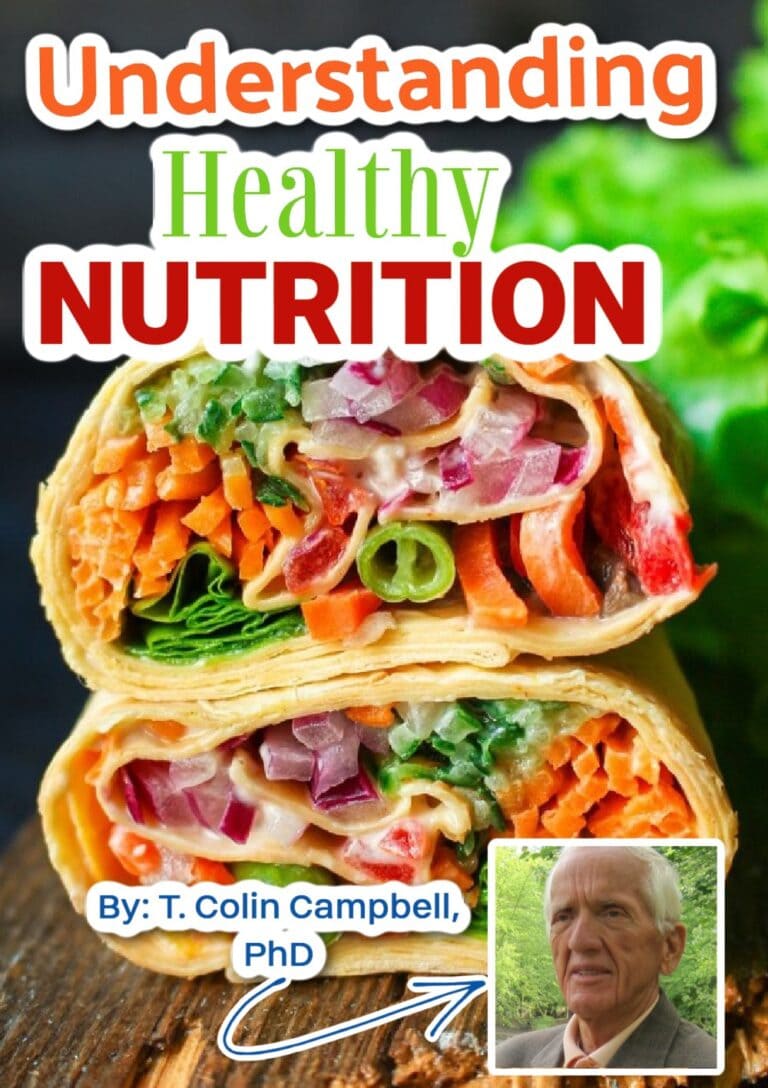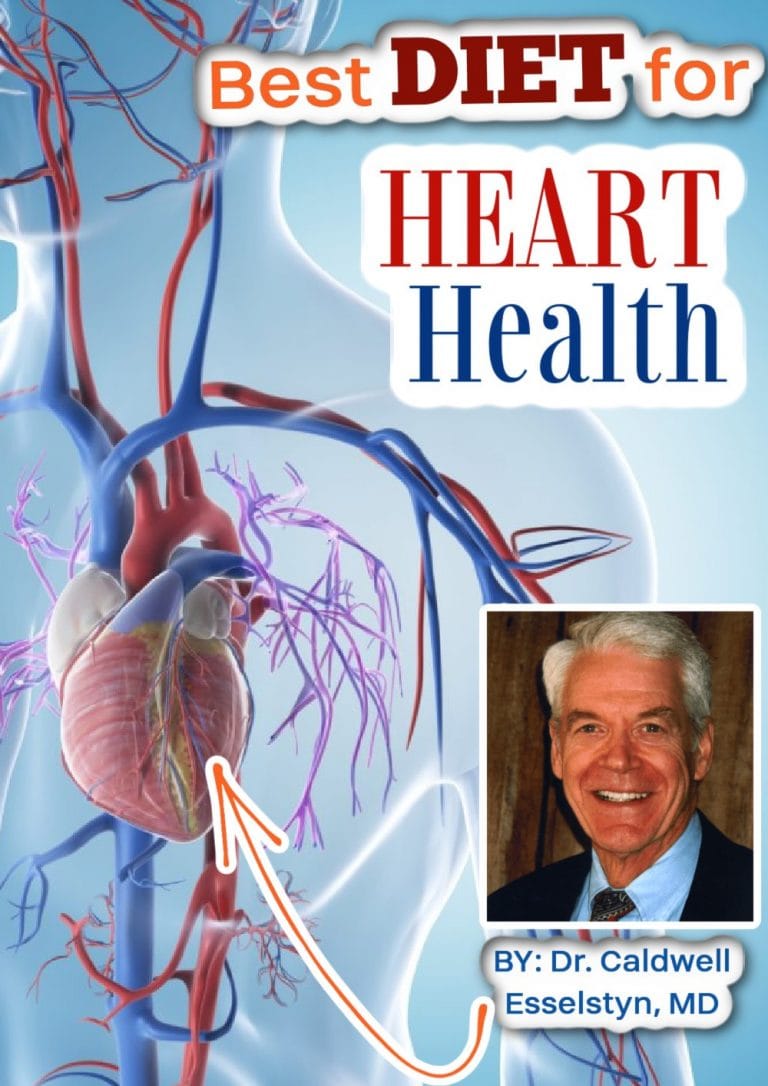Cardiologist Reversing Heart Disease with Lifestyle Medicine
The lightbulb moment for cardiologist Dr. Brian Asbill came after a series of events that began when a patient gave him a copy of a book that changed her life. Little did he know, it was about to change his too.

By: Brian Asbill, MD
After practicing cardiology in Asheville, NC for 19 years, I decided in the summer of 2020 that it was time for my next chapter. I had been blessed with talented and caring colleagues and had shared some special times with several thousand patients, but I began to realize about 7 or 8 years into cardiology practice that I was not truly healing patients in the way that I had initially envisioned. I had become adept at diagnosing and treating a variety of chronic diseases with medications and procedures, yet many of my optimally managed patients continued to suffer from recurrent cardiovascular events.
Realizing there was more to healthcare
Around 2010, I attended the Healthy Kitchens, Healthy Lives conference in Napa with my wife (a general internist), and we were so excited and motivated by the data from all of the nutrition studies that were presented there that we began to change our personal nutrition habits.
A couple of years later, I saw a patient who, after having coronary artery bypass grafting (CABG) surgery, had discovered Dr. Caldwell Esselstyn’s book, Prevent and Reverse Heart Disease. She had begun eating a whole food, plant-based diet with minimal sugar, oil, and salt and had become an avid runner and was doing beautifully. I was not familiar with the book and frankly unfamiliar with the concept of cardiovascular disease reversal at the time. She offered me the book and graciously dropped it off at my office a few days later.
*Dr. Esselstyn shares more in this article, Diet for Heart Health and More.
Shortly after I finished reading it, I met with another patient named George who was having daily angina and had been told that he would require a third open heart surgery and therefore had sought a second opinion. Given that his symptoms were stable and the book was readily accessible, I gave it to him and told him to come back and see me in three months unless his symptoms worsened.
The defining moment
Three months later, George returned and both of our lives were irrevocably changed. He had lost 27 pounds, dropped his cholesterol by 100 points and, within a week of changing his diet, had started walking on a treadmill thirty minutes daily while requiring NO nitroglycerin tablets for relief of chest pain! I told him that the procedures that I had taken years to master and the medications that I had painstakingly learned to prescribe would not have matched the difference that he had made by simply changing to a whole foods, plant-based diet. I was blown away!
Finding answers
Why didn’t I already know this? Why was this not routinely taught in medical school? Is this result typical? I decided that I would do a little self-experiment. I was also a board-certified clinical lipidologist (an expert in the treatment of cholesterol) at the time, and as such, I had access to a number of lipid testing opportunities. I decided to have my cholesterol tested and then committed to eating nothing but plant foods for the next thirty days, meaning no animal foods at all and no processed foods.
At the end of the thirty days, and after losing about 6-7 pounds, I had my cholesterol retested and was shocked to find that my LDL, the bad cholesterol, had dropped from 130 (the mean in the US) to 70 mg/dl – a 45% drop from simply changing what I ate!
It was not until years later that I heard Dr. Kim Williams, then the President of the American College of Cardiology, share his very similar story. I must mention here that both Kim and I are likely what I would call “hyper-absorbers,” meaning that our blood cholesterol levels are strongly related to our dietary intake of cholesterol and saturated fats. There are people who are hyper-producers at the other end of the curve, whose levels are more dependent on cholesterol production in the liver and whose LDL levels may not have been as affected by this type of dietary change.
Healing patients through lifestyle medicine
Based on these experiences, I was eager to learn more about nutrition and the effects of other lifestyle interventions on health and vitality. In 2014 while searching for more information on lifestyle medicine, I stumbled upon the American College of Lifestyle Medicine and a program they were offering called the Complete Health Improvement Program (CHIP). I became a certified CHIP facilitator and began to experience firsthand that helping people adopt new lifestyle habits was reproducibly transformational – they lost weight, their blood pressures, lipids, and blood sugars all improved, and many of them were able to discontinue or dramatically reduce the number of medications they were taking. Of equal importance, I obtained a much different energy from practicing lifestyle medicine and rediscovered the true joy of medical practice.
Eventually, in August 2018, I made the decision to fully transition from cardiology to lifestyle medicine and began planning the next phase. It was time to leave the sick care system behind and begin building a true healthcare system founded upon optimal nutrition, physical activity, and stress management.
Redefining standard healthcare
In late summer of 2019, I reconnected with a college friend named Mike Cowan, a neurosurgeon in Charlotte, who was also interested in lifestyle medicine. We joined forces as co-founders of Ruckus Health along with Fred Byers and Susan Morse. You can learn more about their individual journeys on our website at Ruckus Health.
Our vision is to support people holistically in uncovering their innate ability to live in physical, mental, emotional, and spiritual balance. We seek to mindfully and purposefully disrupt standard healthcare by connecting and enhancing grassroots lifestyle medicine efforts across local communities and creating synergistic partnerships with others in the space (like Terri Edwards!!).
Ruckus Health is currently offering individual consultations with dietitians and health coaches for people who are seeking to incorporate more healthy behaviors into their lives: a healthier, plant-based eating pattern, functional fitness, and stress management. Focusing on just a few, simple goals allows us each to become our best selves and can have significant beneficial effects on our relationships.
Additionally, we are seeking self-insured and self-funded businesses that are interested in offering a lifestyle education program to employees to support these behaviors. Lifestyle education programs not only have been proven to help businesses save money on their health expenses and reduce absenteeism but also empower employees to bring their best selves to work, benefitting the company and community in so many ways.
Together, we can transform our communities and our failing healthcare system and recapture the joy of simply being alive!
Eat Plant-Based!
About the Author, Dr. Brian Asbill

Brian Asbill, MD earned his M.D. degree from the Medical University of South Carolina in Charleston and proceeded with his Cardiology Fellowship there after completing his internship and residency at the University of Virginia Health Sciences Center in Charlottesville. He is board-certified in Cardiovascular Diseases and Clinical Lipidology and served as a cardiologist at Asheville Cardiology Associates (Asheville NC) 2001-2020, where he was Director of the Lipid Clinic. He also was Medical Director of Preventative Cardiology for Mission Health Complete Health Improvement Program (CHIP), an intensive therapeutic lifestyle change program offered through Lifestyle Medicine Institute for the prevention, management, and reversal of vascular disease. He also served on the Board of Directors for Appalachian Sustainable Agriculture Project (ASAP).
Dr. Asbill is a Fellow of the American College of Cardiology and is a professional member of the American College of Physicians and the North Carolina Medical Society. His medical specialties include general cardiology, diagnostic cardiac catheterization and echocardiography, and he has advanced training in nuclear diagnostic imaging.
Dr. Asbill was the first registrant in the world for the inaugural board examination in Lifestyle Medicine, held in October 2017.





I am male age 59. I was diagnosed with Afib 2011. I had corrective ablation 2015. I was ver told I had a nasty case of atherosclerosis although the pre surgical ablation CT clearly showed it. I am asymptomatic.
Although I would get bad head rush when I stood up quickly. My dad needed a pacemaker. The NYU doc who saw him took my insurance. I’d gone to see here simply as a follow up. Since I had not followed up with the electrophysiology do. That had cured my AFIB. Since both were NYU when I walked in to see the new cardiologist who was also attending my dad. She says to me “well since you have atherosclerosis I’ll need to put you on statins.” “How the heck do you know that?” I asked. She told me that all NYU files are shared. I’d had clear signs of atherosclerosis for seven years at least and she could see it clearly on the pre op CT they had done the day of my ablation. The cardiologist who fixed the AFIB. Oils have cared less to tell me. I suppose he figured there was nothing to be done any way. So I begin to take statins. They floor me. I mean right to bed. I told my cardiologist that I’d rather be dead than take that poison that incapacitated me completely. I am athletic. I am a XC skier and a bicycle racer. I told her I did not care about the atherosclerosisI was not going to take something that made me feel so awful. I found Essy’s book that night and I’ve been following the diet religiously. I have to stay alive. I must. I’m the father of SpikeBoarding and the world can use this daily form of skiing. Right now it’s under the effects of the Semmelweis Reflex. So I must remain healthy. Hopefully I can reverse the atherosclerosis! So far so good I feel fantastic. Eating exactly as Essy has prescribed. I’ve noticed zero performance loss and I’ve been summiting massive climbs. The moment I saw doctors as patients who chose this path and angiograms that showed revered atherosclerosis I was in. I really know what that means. Dad had been a radiologist and I completely understand that a revered angiogram is a gold standard. Plus patients who are doctors no less choosing this curative path over angioplasty! I’m in!
I have hypertension that occasionally spikes extremely high. I also have low calcium because of parathyroid damage. Without supplementation it is about 7.6. With supplementation it is about 7.7-7.8. My magnesium and potassium are usually in the low normal or just. 1 below. Doctors just give me more medications. I have been eating much more plant based, but I’m discouraged thinking these things may only be corrected with meds. Am I wrong?
Thank you for promoting this valuable information. My husband was seen by a conventional cardiologist who insisted he needed a triple bypass. The cardiologist would not even listen to our research about plant based eating and refused consider it being possible. We googled “plant based cardiologists” and found Dr. Kim Williams at Rush in Chicago. Dr. Williams supported us in becoming completely plant based and we were able improve my husband’s blockages in about 6 months. That was 4 years ago and he is still doing well and feeling great. My brother, who underwent a triple bypass a couple years later has already had the bypass fail. We need more plant based doctors. Thank you for helping to spread the information.
In his book, “Prevent and Reverse Heart Disease,” by Caldwell B. Esselstyn, MD., he writes about the critical importance of “no oil” at all. He has updated his recommendations since the publication of his book. Do you tell your patients about these updates? One of which is: eating greens six times daily with a few drops of balsamic vinegar to help produce nitric oxide. I am curious if you know about his revisions since publication of his book. Plus, what you do think of his updates? Thank you.
@Kathleen Patton, I believe that it depends on the patient and his or her medical situation and goals of care. If someone is having limiting angina, then one of the goals should be to alleviate the angina as best we can. We can do that by increasing the body’s ability to produce nitric oxide which dilates the arteries and improves blood flow. Oils may inhibit the ability of the arteries to dilate and greens with vinegar promote NO formation. Whether someone needs to do that 6 times a day may depend IMO on the frequency with which they are experiencing angina.
Thanks for this article! Very encouraging to see yet another cardiologist promoting the only diet capable of reversing our #1 killer 🙂
Thanks, Cyd, for the support! This concept of cardiovascular disease reversal is starting to gain increased interest from both the medical and non-medical community. It is a message of hope and empowerment that has sorely been missing in our approach to this all too common condition for years. I am indebted to Terri for helping to spread the word and to you and others who see that pills and procedures have their place but can never serve as a reasonable foundation for treating this and other chronic diseases. It’s time that we recognize the truth about the benefit of plant based nutrition and of lifestyle medicine and share that message.